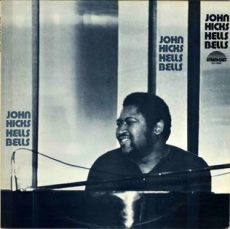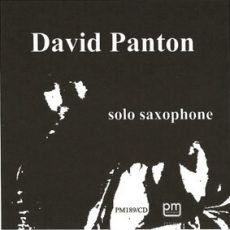
Daily Dose Of Jazz…
Alan Lee da Silva was born on January 22, 1939, in Bermuda, British Empire to an Azorean/Portuguese mother, Irene da Silva, and a black Bermudian father known only as Ruby. Emigrating to the United States at the age of five with his mother, he was raised in Harlem, New York City. Here he first began studying the trumpet, and moved on to study the upright bass. He eventually acquired U.S. citizenship by the age of 18 or 19 and in his twentieshe adopted the stage name of Alan Silva.
As one of the most inventive bass players in jazz, Silva has performed with avant-garde jazz musicians Cecil Taylor, Sun Ra, Albert Ayler, Sunny Murray, and Archie Shepp. He performed in 1964’s October Revolution in Jazz as a pioneer in the free jazz movement, and for the 1967 live album Albert Ayler in Greenwich Village.
Since the early 1970s, Alan has lived mainly in Paris, France where he formed the Celestrial Communication Orchestra, dedicated to the performance of free jazz with various instrumental combinations. In the 1980s, Silva opened a music school, Institute for Art, Culture and Perception (I.A.C.P.) in Central Paris, together with François Cotinaud and Denis Colin.
In the 1990s he picked up the electronic keyboard, the electric violin and electric sarangi on his recordings. Since around 2000, he has continmued to perform more frequently as a bassist and bandleader, notably at New York City’s annual Vision Festivals.
More Posts: bass,history,instrumental,jazz,keyboards,music,sarangi,violin

Daily Dose Of Jazz…
Simon H. Fell was born on January 13, 1959 in Dewsbury, Yorkshire, England. He began playing double bass in 1973 and from 1978 to 1981 he read English Literature at Fitzwilliam College, Cambridge, England. His early group was a free-jazz trio with drummer Paul Hession and saxophonist Alan Wilkinson. They recorded and released their music on his label Bruce’s Fingers.
During this period Fell was significantly connected with The Termite Club in Leeds. He was a member of the free jazz trio Badland, the improvising string and percussion ensemble ZFP with Carlos Zingaro, Marcio Mattos and Mark Sanders, and SFQ, a quartet/quintet with clarinettist Alex Ward and a changing membership. He also performed in many other ensembles, including the London Improvisers Orchestra and Derek Bailey’s Company Week.
Simon wrote a major sequence of four new large-scale compositions titled Compilation. Free improvisation, rock and jazz all form key parts of the musical language. Noise guitarist Stefan Jaworzyn, Evan Parker and John Butcher were essential musicians to the projects, but he often deliberately made use of amateur or student musicians.
Bassist and composer Simon Fell, who is primarily known for his work as a free improviser and the composer of post-serialist compositions, died on June 28, 2020
More Posts: bandleader,bass,history,instrumental,jazz,music

Daily Dose Of Jazz…
John Josephus Hicks Jr. was born December 21, 1941 in Atlanta, Georgia, the eldest of five children. As a child he moved around the United States as his father, Rev. John Hicks Sr, took up jobs with the Methodist church. His mother was his first piano teacher after he began playing at six or seven in Los Angeles, California. He took organ lessons, sang in choirs and tried the violin and trombone. Once he learned to read music around the age of 11, he started playing the piano in church.
His development accelerated once his family moved to St. Louis, Missouri when Hicks was 14 and he settled on the piano. Attending Sumner High School and played in schoolmate Lester Bowie’s band, the Continentals, which performed in a variety of musical styles. Hicks worked summer gigs in the southern United States with blues musicians Albert King and Little Milton with the latter providing his first professional work in 1958.
He studied music in 1958 at Lincoln University in Pennsylvania, where he shared a room with drummer Ronald Shannon Jackson. He also studied for a short time at the Berklee School of Music in Boston, Massachusetts before moving to New York in 1963.
In New York, John first accompanied singer Della Reese, then went on to play with Joe Farrell, Al Grey, Billy Mitchell, Pharoah Sanders, Jimmy Witherspoon, Kenny Dorham and Joe Henderson before joining Art Blakey’s Jazz Messengers in 1964. From 1965 to 1967 he worked on and off with vocalist Betty Carter, then joined Woody Herman’s big band, where he stayed until 1970, playing as well as writing arrangements for the band.
From 1972 to 1973, Hicks taught jazz history and improvisation at Southern Illinois University. From the 1970s onward he had a prolific career as a leader recording his debut in England followed by fifty-three more albums and as a sideman he recorded 300.
Towards the end of his life, he taught at New York University and The New School in New York. In 2006 John played in a big band led by Charles Tolliver, recorded his final studio album On the Wings of an Eagle.
Pianist, composer and arranger John HIcks, whose collection of papers, compositions, video and audio recordings are held by Duke University, died from internal bleeding on May 10, 2006.
More Posts: arranger,bandleader,composer,history,instrumental,jazz,music,piano

Daily Dose Of Jazz…
Nicole Rampersaud was born on December 17, 1981 in Toronto,Canada. Studying trumpet through high school she then went to earn an undergraduate degree from the University of Toronto in Jazz Performance. From there a scholarship led her studies to the New England Conservatory, where she earned her Master’s Degree in Jazz Studies. While at the Conservatory, Nicole studied with Danilo Perez, John McNeil, Jerry Bergonzi, Joe Morris, Herb Pomeroy, Joe Maneri, and Bob Moses. She also studied composition with Michael Gandolfi and Ken Schaphorst.
Developing her singular voice that intersects with a broad range of musical practices and traditions, Nicole has become a sought-after collaborator with a host of artists. A few of his contemporary musicians are Anthony Braxton, Joe Morris, Ra-kalam Bob Moses, Sandro Perri, and many more.
Rampersaud’s primary groups include Brass Knuckle Sandwich with pianist Marilyn Lerner, a duo with guitarist Joel LeBlanc, and she is a founding member of the trio c_RL alongside Allison Cameron and Germaine Liu. She has performed with AIMToronto Orchestra, Eucalyptus, Michael Vlatkovich 5 Winds, and Montreal-Toronto Art Orchestra.
Since 2008, she has been building a catalogue of solo compositions that deconstruct the trumpet’s sonic possibilities and co-founded the improvisation-driven series, Understory. Trumpeter and composer Nicole Rampersaud continues to relentlessly seek out and create spaces to work with a diverse and expanding group of music-makers.
More Posts: bandleader,composeer,history,instrumental,jazz,music,trumpet

Daily Dose Of Jazz…
David Panton was born on October 20, 1946 in the Midlands, England where his formative musical experience revolved around singing in the local church choir and later with a mixed voice choir and an amateur operatic society. He began teaching himself classical piano from the age of twelve and by fifteen had begun to compose by improvising at the keyboard. At seventeen he joined the army as a bandsman, taking up the oboe and being posted for a year in 1964 to Kneller Hall, the Military School of Music. He later attended Birmingham School of Music for piano tuition under the late William Fellowes for a year from 1966. His composing took on a more modern direction which was largely unintelligible to his military colleagues.
After four years as bandsman he resigned to pursue a musical career back in civilization, taking up the alto saxophone as a result of hearing some of the American and British free jazz players of the time such as Ornette Coleman and Mike Osborne. He formed several groups and gave solo performances at the Birmingham Arts Lab, Midlands Arts Centre, Birmingham and Midlands Institue as well as numerous pubs. He made contact with London based musicians John Stevens, Evan Parker, Derek Bailey and Maggie Nichols which led to occasional appearances around the city.
He ventured into folk music with the group Forest, followed by the experimental theatre group Chameleon Laboratory Theatre. In 1979 he received an Arts Council jazz bursary, allegedly the first provincal based musician to do so, with a second following in 1981. By 1989 he abandoned music and started up an audio cassette duplication business. When the demise of the audio cassette undermined business viability, David opted to take up a civil service post in the late Nineties from which he retired in 2006.
In 2009 he was awarded the MA in Music from the Open University and has continued to pursue music activities in academia.
More Posts: bandleader,history,instrumental,jazz,music,piano,saxophone




